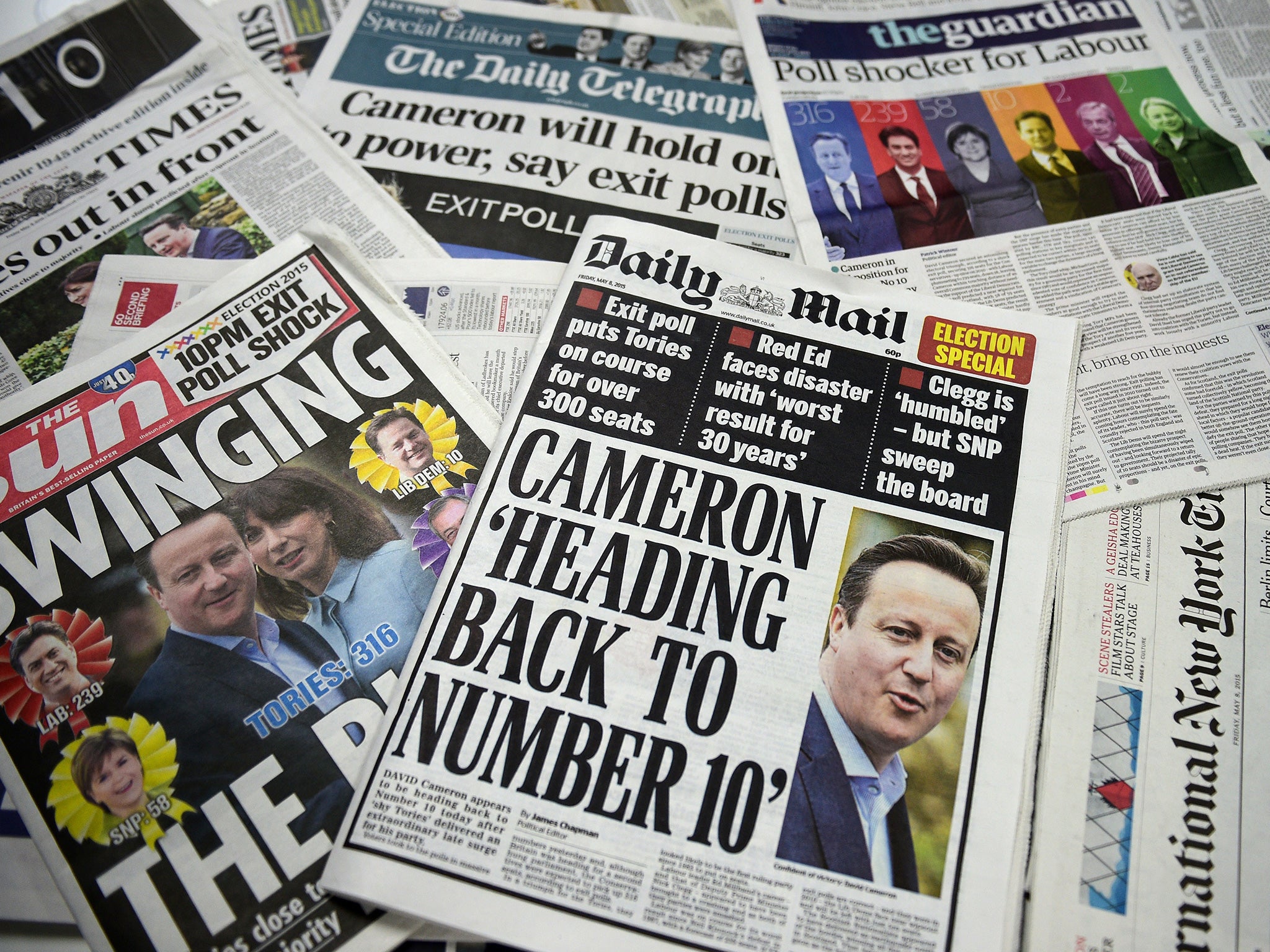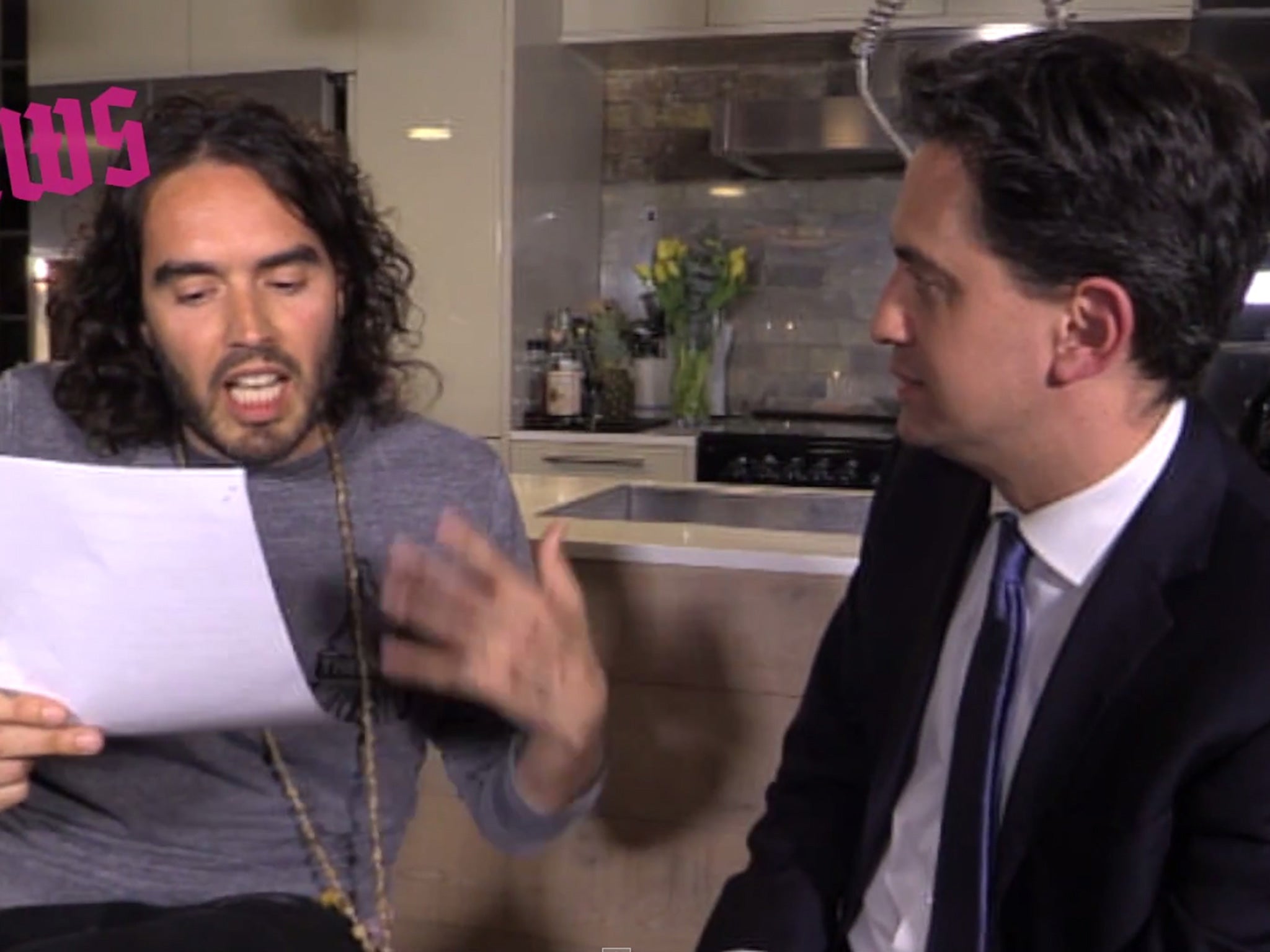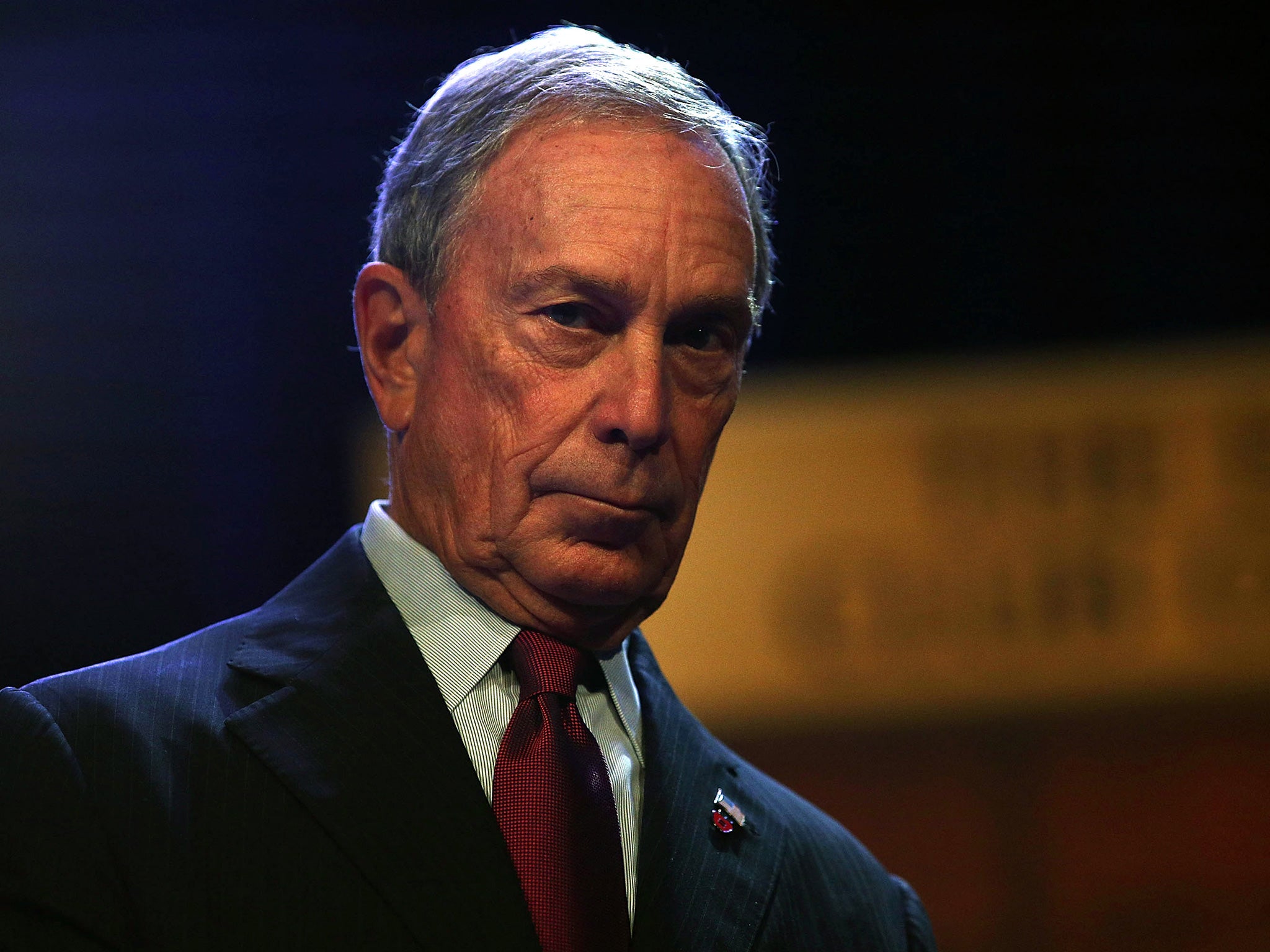The Media Column: Post election, the jury’s still out on the power of social media
The anti-Miliband campaign waged by Tory-supporting papers read by the majority of readers may have pushed more wavering voters into the blue camp

Your support helps us to tell the story
From reproductive rights to climate change to Big Tech, The Independent is on the ground when the story is developing. Whether it's investigating the financials of Elon Musk's pro-Trump PAC or producing our latest documentary, 'The A Word', which shines a light on the American women fighting for reproductive rights, we know how important it is to parse out the facts from the messaging.
At such a critical moment in US history, we need reporters on the ground. Your donation allows us to keep sending journalists to speak to both sides of the story.
The Independent is trusted by Americans across the entire political spectrum. And unlike many other quality news outlets, we choose not to lock Americans out of our reporting and analysis with paywalls. We believe quality journalism should be available to everyone, paid for by those who can afford it.
Your support makes all the difference.It was supposed to be the “first social media election” but while the digital revolution gave us “Milifandom”, it’s questionable whether the national debate was greatly enhanced. Newspapers continued to set the agenda for the daily broadcast news during a campaign again skewed by the huge amount of attention paid to the set-piece televised “debates”.
Labour dominated “mentions” on Twitter on polling day, but much good it did the party. Twitter and Facebook are unbeatable platforms for the committed to declare partisan allegiance and pour scorn on hate figures. But in terms of spreading information which might encourage the disengaged to cast their vote, the jury remains out.
Predictions that BuzzFeed, which has made the transition from listicles to investigative journalism, would drive the election in a viral direction, proved optimistic. The Sun’s move to create a bright and breezy SunNation Twitter feed, very much in BuzzFeed’s image, stole its thunder.
Ed Miliband’s attempt to break the log jam by making a late-night dash to Russell Brand’s flat was the one moment which left traditional media flat-footed. His interview on Brand’s Trews YouTube channel has been watched by 1.2 million people, many of whom would never consider watching Newsnight.

The aggressive anti-Miliband campaign waged by Conservative-supporting papers read by the majority of readers may have pushed more wavering voters, fearful of an SNP-backed Labour administration, into the blue camp.
Yet with the turnout well below 60 per cent in some seats, perhaps a new language for addressing politics is needed.
This campaign was the first general election since the arrival of a UK edition of The Huffington Post in 2011.
With an audience of 14 million monthly unique visitors, the blogging and news platform believes it has played an important role by offering readers an alternative to the widespread Photoshopped images of party leaders.
Stephen Hull, editor-in-chief of the UK edition, said: “We made a mark with our Beyond the Ballot initiative.
“It’s our take on the issues too awkward for Westminster that politicians don’t want to talk about.
“We covered areas such as mental health, internet freedom and housing. We try to go beyond the issues to present considered pieces of accomplished journalism.”

“Likes” on the Post’s UK politics Facebook page have grown by 251 per cent in the past year.
The final days of the election campaign were marked by increasingly vitriolic tabloid attacks on Mr Miliband. But a wholly different, more positive tone is required to engage an online audience with politics and news generally, argues Arianna Huffington, who last week marked the 10th anniversary of the site she launched as a liberal-left counterpoint to the web’s conservative voices.
“We are determined to reimagine journalism with our What’s Working global initiative, taking it beyond the tired ‘If it bleeds, it leads’ approach,” she said.
“We will of course continue covering the crises, the stories of violence, tragedy, dysfunction and corruption, but we’re dramatically increasing our coverage of stories of innovation, creativity, ingenuity and compassion, because we believe we owe it to our readers to give a full picture of what is happening in the world.”
Mr Hull, who speaks with Ms Huffington every week, will be in the vanguard of this “positive news” focus.
He said: “It doesn’t mean pictures of cats. It’s stories about people that overcome the odds and offer solutions to the challenges we face today.” A complaint often voiced by the Post’s UK rival, Guido Fawkes, is that it fails to break enough big political stories. Mehdi Hasan, its most provocative political voice, has been lured to Al Jazeera English in Washington.
“HuffPo” has responded by doubling the size of its political team. Paul Waugh, a Westminster lobby journalist for 17 years, will join as executive editor. The UK platform will have 42 paid journalists providing news and analysis as well as a network of 11,000 bloggers, who contribute for free.
“I don’t feel any heat from Guido. We’re making a statement with these hires,” Mr Hull said. “Paul Waugh has superb political contacts.”
Once a digital insurgent fighting for attention, The Huffington Post is now owned by the AOL web giant.
But its publishing model still relies on unpaid contributions. “Our bloggers are independent, they write what they like unless it’s homophobic or racist,” Mr Hull said. “They come to us and they get to amplify their own brand and get a bigger reach.” If Ms Huffington is right, then the best chance that digital media has of breaking through a widespread cynicism about politics is to reduce the level of snark and personal abuse and offer readers a glimpse of the sunlit uplands instead.
“We have recognised that people don’t want to talk about misery,” Mr Hull said. “It’s not about dumbing down but looking at issues in a more solution based way.” “Let sunshine win the day” perhaps – as David Cameron said at the conclusion of his first speech as Conservative Party leader.
Bloomberg spreads his business to Britain
Michael Bloomberg could be spending more time in Britain – and not just because the media mogul is said to be considering a Conservative offer to replace Boris Johnson as London Mayor.
The billionaire former three-term mayor of New York, who co-founded Bloomberg News in 1990, has launched a European edition of the influential Bloomberg Business this week.
The free-to-view website is tailored for a general UK and European business audience and puts Bloomberg in direct competition with the both the Financial Times and Wall Street Journal as well as online digital upstarts Mashable and Business Insider.

Adam Freeman, managing director of Bloomberg Media, says: “The established financial media brands found the digital transformation painful and are retreating.
“Bloomberg now has 2,500 journalists and 100 bureaux around the world. We also have the world’s most successful paywall (the fixed data terminals which 310,000 subscribers pay £18,000 a year to use), which allows us to keep investing in news.”
Mr Freeman believes the world of business has invaded the dinner-party conversations of information-hungry readers and the European platform will adopt a more “accessible” tone to reach its audience.
But to the big question of whether Mr Bloomberg will be running for office here, as has been widely rumoured, Mr Freeman could only say: “I think he’s very happy running Bloomberg and his philanthropic enterprises.”
One year on from ‘right to be forgotten’ ruling
Wednesday marks the first anniversary of the European Union Court of Justice ruling that people have a right to demand that certain kinds of information should be deleted from search results, giving legal force to the controversial concept of the right to be forgotten.
The ruling prompted a surge in requests from people seeking to delete embarrassing or damaging personal content from search results – but not necessarily from the sites they link to.
Google has assessed 910,000 requests to remove content since the ruling and removed 307,000, of which some 37,000 relate to the UK.
Wikipedia co-founder Jimmy Wales described the impact as “wide-sweeping internet censorship” and Google has stressed that it tries to implement a ruling it did not seek sensitively. Dave King, founder of online reputation management company Digitalis Reputation, warns: “Some of the material removed is irrelevant and out of date, but often when a publisher is alerted they write the story afresh and it stays in the public eye.”
RTBF has created a boom for management companies such as Digitalis, which “rebalances profiles” by driving negative links down Google’s search engine and promoting more positive references instead.
Join our commenting forum
Join thought-provoking conversations, follow other Independent readers and see their replies
Comments